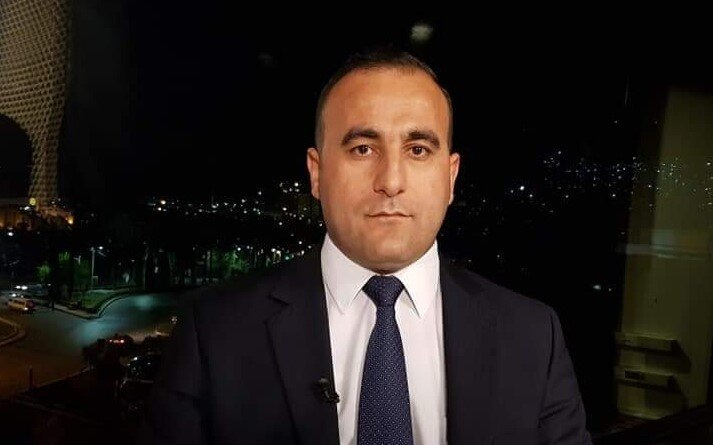American Caesar act cannot affect the Syrian economy: Syrian politician

A member of the National Reconciliation Committee in Syria stresses that the American Caesar act cannot paralyze the Syrian economy, and Damascus's collaboration with its neighboring countries will continue.
"American Caesar act cannot affect the Syrian economy, or change the situation," Omar Rahmoun tells the Tehran Times.
"The only effect of Caesar's act is the psychological impact as the media infuse the Syrian markets with concerns about an economic collapse." He added.
Following is the text of the interview:
Q: What is your comment on the Turkish presence in Libya? What is Syria's position towards recent military clashes in Libya?
A: Turkey is going now and in the next phase to play the scarecrow role, in which America will frighten Arab countries and milk them.
The Turkish presence in Libya is an expansionist colonial policy that tries to restore the Ottomans Empire's glories, and all the slogans that Erdogan raises on the victory of the Libyan people are fake and misleading.
Ankara is intended to camouflage the real goal, which is the new colonialism and serving superpowers.
There are two projects in Libya; An Arab project aimed at expelling the occupiers and returning stability to Libya. This project, supported by Russia and Syria, stands with Libya against colonialism and occupation.
The second project is the Turkish-American occupation, which plans to control the Libyan oil and gas capabilities.
Syria stands against this American-Ottoman project in Libya.
Q: What is the impact and repercussions of the Caesar project on the Syrian economy and political structure? What are the possible mechanisms which the Syrian government can develop to contain U.S. sanctions?
A: American Caesar bill cannot affect the Syrian economy, or change the situation. Our borders with neighboring countries have remained open, and our cooperation with our friends has increased recently.
The only effect of Caesar's act is the psychological impact as the media infuse the Syrian markets with concerns about an economic collapse due to the act. Still, after the signing of the law, nothing happened on the ground.
The Syrian state is working by all its departments to eliminate the negative effects of the rumors about Caesar's law.
We have come a long way; still, the country would not calm down until life returned as before the media hype that accompanied Caesar's law.
Q: How do you see the fate of the Turkish-American presence in Syria? Turkey says it wants to thwart Kurdish attempts for separation, and the U.S. claim it came to fight terrorism.
A: All foreign occupation on the Syrian lands will end and disappear. We are in the last episode of the existence of this occupation on our lands, especially the Turkish and American invasion in the north and northeast of Syria.
There is no reason to continue the invasion, and the occupying forces will be gone, while the coming period is going to witness a lot of changes related to this aspect.
Q: Regarding the Astana talks, what are the latest developments, and do you think it has been successful in reducing tension?
A: Undoubtedly, the Astana talks had a perfect role in creating de-escalation zones that came eventually under the control of the Syrian state and the Syrian Arab Army.
But the talks are now almost frozen because the Turkish guarantor is unable to fulfill its obligations to end extremist factions activities and separate the moderate opposition from the radical ones.
Q: It seems that the countries that fought to topple the Syrian state today have accepted remaining Bashar Al-Assad in power. Do you expect Syria to resume its relations with Persian Gulf countries or Turkey?
A: Everything has changed, and the whole world has changed. There is a big difference between 2011 and 2020. The countries that attacked Syria and were convinced to topple the Syrian state today are continuing to restore their relations with Syria, trying to take advantage of the country to strengthen the Arab barrier in front of the new Turkish colonial policies.
As is well known, the UAE has reopened its embassy in Damascus, and the (Persian) Gulf countries will soon be behind.
Q: What are the latest developments in aid delivery in Syria? How do you see the role of Washington and the Security Council in this regard?
A: The U.S. always raves about helping the Syrian people while it trains and equips armed groups to fight against Bashar Al-Assad.
Recently, the Chinese and Russian double veto power was used to overturn a decision passed in 2014 No. 2165 to deliver aid through cross-border outside the state's control and without coordination with Damascus.
After using the veto, and responding to proposals, it was agreed to open the Bab Al-Hawa Border Crossing only for a year.
Afterward, any aid must be entered through coordination with the Syrian government.
In my assessment, the U.S. main goal is to strengthen and equip terrorists by weapons, not aid delivery.
If it wanted to help the Syrian people, the Caesar act would not have been ratified.

